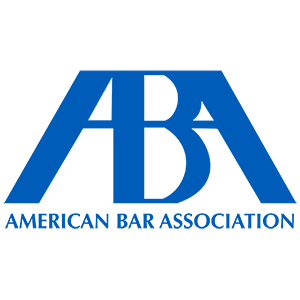AHCCCS CAF Suspensions-the biggest scandal in Arizona, or did AHCCCS make its own bed?
August 21, 2023
AHCCCS, Arizona’s State Medicaid Program, has suspended almost 220 behavioral health providers since January 1, 2023. The peak was likely reached on May 15th, 2023, when 101 providers were cut off simultaneously. These suspended entities had one thing in common: providing outpatient behavioral health services to Native Americans enrolled in the American Indian Health Program (AIHP). Prior to May 1, 2023, requirements to become an AIHP provider were lax. There was little oversight, rules, or guidance with respect to the fee-for-service billing model and no prior authorization for behavioral health services was required. Much like the Paycheck Protection Program (PPP), the AIHP program was greatly expanded during the pandemic. Unfortunately, just like the PPP, AIHP devolved into a chaotic “free for all” and became a breeding ground for fraud. As a result, between 2019 and 2020, the billings to AHCCCS for outpatient behavioral health more than doubled, from $53.5 million $132.6 million. By 2022, the amount billed to AHCCCS for these services ballooned to $668 million, an increase of 1148% in just three years.
The AHCCCS Suspensions have become political hot topics for the Governor and the Attorney General, who blame the prior administration for AIHP’s shortcomings.
With AHCCCS on the verge of bankruptcy, and complaints of rampant fraud on the rise, Arizona’s Governor, and the Attorney General’s Office stepped in. In May of 2023, AHCCCS was given clear marching orders from to shut down as many providers as possible. In a press conference on May 16, 2023, the day after the mass suspensions, both Governor Katie Hobbs and Attorney General Kris Mayes blamed the Ducey administration and AHCCCS’ incompetence for the failure of the AIHP program. Hobbs noted that nothing was being done by her predecessor to address the “problem”, claiming that numerous AHCCCS staff members had expressed concern. Mayes told reporters that this was “one of the biggest scandals in the history of the state of Arizona.” Mayes also blamed Mark Brnovich, the former Attorney General, for ignoring concerns brought forth by his prior deputies.
Although something needed to be done, many innocent providers have also been unfairly shut down.
All of the 200 plus providers were shut down pursuant to federal regulations which allow state Medicaid programs to “temporarily” suspend payments if presented with a “credible allegation of fraud” (“CAF”). See 42 C.F.R. § 455.23(a)(1). The duration of the suspension is supposed to be temporary in nature. However, the suspension is to continue until: 1) the agency or the prosecuting authorities determine that there is insufficient evidence of fraud by the provider; or 2) legal proceedings related to the provider’s alleged fraud are completed. 42 C.F.R. § 455.23(c)(1).
The rampant fraud that permeated every level of the AIHP forced AHCCCS’ hand. Indeed, to say that the coffers had been cleaned out would be an understatement. However, as is all too common, the real victims are quickly forgotten about. This scheme was carried out at the expense of AIHP’s Native American members whose need for services have only continued to swell. Providers “recruited” patients directly from the streets, with promises of free food and housing, without regard for whether the patient even needed substance abuse treatment. Others billed for services that were never provided, billed for “ghost” patients, billed for more hours than their facility was open (14-19 hours per day) and created fake patient notes. Worst of all, some providers even allowed Native Americans to drink alcohol while in their care. Unfortunately, however, numerous providers, who actually cared for their patients, followed all of the rules, and billed AHCCCS within the requisite guidelines, were also swept up in the mass suspensions.
AHCCCS has accepted little responsibility for its own role in the downfall of AIHP program. Rather than addressing the problems methodically, by remedying the lack of oversight and carelessly drafted rules, AHCCCS elected to, in effect, close the program completely. The problem AHCCCS faces now, however, is that all the suspended providers are entitled to due process, regardless of how toothless the processes may be. There are simply not enough AHCCCS investigators to adequately investigate 220 fraud cases. Similarly lacking are the number of administrative law judges and hearing days for these providers to be afforded any, much less adequate, due process. AHCCCS has also “referred” every single one of its suspensions to law enforcement, as a matter of course, which even further delays any possible resolution. Because of the delays inherent in the suspension “review” process, many innocent providers will most likely eventually give up, and close their doors-a fact about which AHCCCS is certainly aware, and most certainly is counting on. AHCCCS needed to stop the bleeding.
Providers are entitled to a hearing on whether AHCCCS can prove a credible allegation of fraud within 60 days.
Providers who are suspended are entitled to a hearing before an Administrative Law Judge. Hearings, according to A.R.S. § 41-1092.05, “shall be held within sixty days” after a request for hearing has been filed. AHCCCS has the burden to prove a “credible allegation of fraud.” See 42 C.F.R. § 455. 23(a)(1). Federal regulation 42 § CFR 455.23 describes a credible allegation of fraud as an allegation, “which has been verified by the State, from any source, including but not limited to the following:
(1) Fraud hotline tips verified by further evidence,
(2) Claims data mining, or
(3) Patterns identified through provider audits, civil false claims cases, and law enforcement investigations. Allegations are considered to be credible when they have indicia of reliability, and the State Medicaid agency has reviewed all allegations, facts, and evidence carefully and acts judiciously on a case-by-case basis.”
Providers should insist during the hearing that AHCCCS does have the burden to prove fraud.
AHCCCS has taken the position that the above standard is subjective. In other words, as long as AHCCCS believes an allegation is credible, the suspension must stand, until a “full investigation” has ensued (whatever that means.) However, the regulations themselves specifically define “fraud” as an “intentional deception or misrepresentation made by a person with the knowledge that the deception could result in some unauthorized benefit to himself or some other person.” See 42 C.F.R. § 455.2. If the standard is subjective, as AHCCCS has consistently maintained, this interpretation would render the inclusion of the words “credible” and “fraud” in 42 § CFR 455.23 superfluous. These regulations, in this writer’s view, require that AHCCCS’ alleged claims of fraud must be credible, and supported by evidence. In addition, the regulations require a showing of fraudulent intent. Making a mistake, a misunderstanding or a misreading of an ambiguous and confusing policy, is not fraud. Yet, AHCCCS has suspended hundreds of providers based on poorly drafted billing regulations, and rules which either did not exist, or were not clearly defined.
AHCCCS is accusing hundreds of providers of overbilling, even though there was no cap on the per diem rate.
Prior to May 1, 2023, there was no cap on the rate that providers could bill for CPT Code H0015, a code used for intensive drug and alcohol services provided on a per diem basis. Providers could bill on a “by report” basis, and AHCCCS paid 58.66% of the billed amount. The term “by report” was not defined in the code, nor anywhere else. As a result, some providers were billing AHCCCS upwards of $1500 a day, based on the market and what other like providers were also billing. Typically, private insurers were reimbursing providers $400-$700 for per diem under H0015. In contrast, it is not uncommon for high end providers to charge upwards of $2500 a day. With little or no guidance, many providers set their own rate based upon the quality of services that they believed they were providing. AHCCCS reimbursed these providers at 58% of that rate, and in many instances did so for years, before imposing the suspensions.
On May 2, 2023, AHCCCS cut the rate for H0015 to $157.86, effective, conveniently, on May 1, 2023. By doing so, many providers have complained that AHCCCS failed to follow the Rate Development Standards outlined in 42 C.F.R. § 438 et. seq. and other federal regulations. That aside, AHCCCS now accuses many of the “innocent” providers of billing excessively if their rate exceeded the newly established rate of $157.86. In other words, the new rate is being applied retroactively on an ex post facto basis.
AHCCCS is also claiming that the provision of food and housing for patients is an illegal kickback.
AHCCCS is basing its suspensions on various other claims, including, but not limited to, rules that do not exist. As another example, many outpatient providers furnish free food and housing to their patients. The justification is that patients who are homeless and hungry are focused on finding their next meal and shelter, and thus, cannot possibly be focused on their recovery. By facilitating housing and transportation to the clinic, the provider can help ensure that the patients actually attend their treatment sessions. Many of the patients also reside on remote reservations and do not have any family or friends who live in the areas where services are more available.
AHCCCS asserts that the provision of free food and housing is an inducement, and thus an illegal kickback. There is no rule, however, against this, even though AHCCCS has been aware that many of these providers have been providing housing for years. AHCCCS has promulgated dozens of changes to its program in the last few months and continues to tout about the many other changes it intends to make in the future. However, nothing about prohibiting housing has been mentioned. See Fact Sheet: Provider Payment Suspensions. https://www.google.com/search?q=fact+shee+ahcccs&oq=fact+shee+ahcccs+&gs_lcrp=EgZjaHJvbWUyBggAEEUYOTIJCAEQIRgKGKABMgkIAhAhGAoYoAEyCQgDECEYChigATIJCAQQIRgKGKsC0gEINTI2MGowajeoAgCwAgA&sourceid=chrome&ie=UTF-8. AHCCCS has immense power to regulate this conduct and has failed to do so.
Regardless of the allegations, providers should insist that AHCCCS has the burden of proving fraudulent intent at the CAF hearing. Attorneys representing suspended providers should also ensure that AHCCCS is not attempting to enforce rules retroactively nor trying to impose rules upon providers that do not exist.
The rules allow for an informal settlement conference, but they are not typically fruitful.
A.R.S. § 41-1092.06 allows a suspended provider to submit a written request for an informal settlement conference. Such request must be submitted no later than 20 days before the hearing. The settlement conferences are virtual, and in this writer’s experience, one-sided. AHCCCS expects that the provider to present its side of the story, and typically does not provide any insight as to its own case, other than addressing questions about the limited – and often disjointed – discovery that is provided in advance. Because AHCCCS is so overwhelmed with suspensions and hearing requests, it has been essentially non-responsive to settlement offers, and often radio silent after settlement conferences.
AHCCCS “referrals” to law enforcement has the effect of extending the “temporary” suspensions indefinitely.
As set forth above, suspensions are supposed to be temporary in nature. However, AHCCCS, as a matter of course, and as a matter of law, refers every single one of its cases to either the Arizona Attorney General’s Office, the Office of Inspector General, or the Federal Bureau of Investigation. See 42 § CFR 455.23(d)(1) (“Whenever a State Medicaid agency investigation leads to the initiation of a payment suspension in whole or part, the State Medicaid Agency must make a fraud referral to…. a Medicaid fraud control unit…(or) to an appropriate law enforcement agency.”
42 CFR § 455.23(d)(2) requires that any fraud referral:
(i) Be made in writing and provided to the Medicaid fraud control unit not later than the next business day after the suspension is enacted.
(ii) Conform to fraud referral performance standards issued by the Secretary
Importantly, 42 CFR § 455.23(d)(3)(ii) requires that the Medicaid fraud control unit, or the law enforcement agency must certify quarterly that its investigation is continuing, and thus continuation of the suspension is warranted. If law enforcement declines to certify that the matter is still under investigation, a provider can certainly argue the lack of certification could be “good cause” to lift the suspension. See 42 CFR § 455.23(e)(5).
In practice, AHCCCS oftentimes taken the position that it cannot enter into any kind of a settlement agreement while a law enforcement investigation is pending. The statute of limitations for fraudulent schemes in Arizona is seven years, and the statute of limitations for mail, wire and health care fraud under federal law is the same. Given that there are currently 220 suspensions pending for 2023 alone, and thus 220 referrals to law enforcement, the delay associated with resolving these matters is unknown, and essentially infinite for a business whose payments from AHCCCS have ceased.
What happens after the “hearing?”
CAF hearings resemble trials insofar as the parties can present opening statements, witnesses, documentary evidence, and closing arguments. The hearing is recorded. A.R.S. 41-1092.07(7) requires that the administrative law judge’s decision “shall include findings of fact and conclusions of law, separately stated.” The ALJ is required to issue her decision twenty (20) days after the hearing. A.R.S. § 41-1092.08(A).
Incredibly, the ALJ’s decision is then sent to the Director of AHCCCS, and within 30 days, the Directors may accept, reject or modify the ALJ’s decision. In other words, AHCCCS gets the last say. If the Director rejects or modifies the decision, she need only set out a written justification setting forth her reasons. Id. The Director’s is the final administrative decision. A.R.S. § 41-1092.08(B).
In an appeal of an administrative board’s decision pursuant to the Administrative Review Act, the superior court determines whether the administrative action was either illegal, arbitrary, capricious, or was an abuse of discretion. Smith v. Ariz. Long Term Care Sys. 207 Ariz. 217, 220-21, 84 P.3d 482, 485-86 (App. 2004). The trial court examines the record to determine whether there is substantial evidence to support the administrative decision. Woerth v. City of Flagstaff, 167 Ariz. 412, 417, 808 P.2d 297, 302 (App.1990). The court has authority to make its own rulings on questions of law. Bucciarelli v. Ariz. Dep’t of Transp., 166 Ariz. 67, 68, 800 P.2d 54, 55 (App.1990).
There are no reported decisions related to a trial court’s review of an AHCCCS decision related to a CAF hearing. One unreported case, Rehab Arizona, L.L.C. v. Arizona Health Care Cost Containment System, No. 1 CA-CV 18-0511 (Ariz. App. April 4, 2019), 2019 WL 1530112, appears to affirm that the record must support some evidence of fraud. The provider in this case, Rehab Arizona, L.L.C. (RAZ), according to the ALJ’s findings of fact, had submitted claims seeking reimbursement for services purportedly performed by a Dr. Carvel Jackson, even though Dr. Jackson had not actually provided those services. Dr. Jackson had also written to RAZ, advising it was inappropriately doing business under his name and he was “not willing to allow [RAZ] to continue to use J Carvel Jackson DO, the name, the person, the tax identification numbers or insurance contracts without compensation.” Indeed, RAZ itself admitted it violated the PPA by billing under Dr. Jackson’s name for services provided by uncredentialed physicians who replaced Dr. Jackson, as well as midlevel providers that Dr. Jackson supervised. Under these circumstances, the administrative law judge found that a credible allegation of fraud existed. The superior court affirmed AHCCCS’ decision, and RAZ appealed. On appeal, affirming the ALJ’s decision, the court noted: “We will uphold AHCCCS’s decision unless it is “illegal, arbitrary, capricious or involved an abuse of discretion.”
Where do providers go from here?
Practically speaking, the environment in which these suspensions have occurred have created a difficult course to navigate. Lawyers must be mindful, first, about whether their clients are being criminally investigated, and whether criminal charges are indeed viable. Given the number of pending investigations, obtaining this information from the AG’s Office, or the U.S. Attorney’s Office may not be easy. Which of these providers are a priority in terms of prosecution is unknown, however, the amount of money at issue is a good place to start. Only those who engaged in egregious conduct, not those who misunderstood, or operated within the bounds of the rules, should be prosecuted. These prosecutions have been announced as a priority by Attorney General Mayes, and the United States Attorney for the District of Arizona, Gary Restaino.
Deciding whether to proceed to a CAF hearing, or attempting to settle is another challenge altogether. AHCCCS does not appear to be interested in resolving many of these cases, if any, and is hoping, it appears, that these providers will just give up, and just go away. This approach, however, defeats the entire purpose of the AIHP program, which was to provide behavioral health services to a population that greatly needs it. Shutting down these providers, which has had the effect of sending patients back to the streets, or drug infested motels, is certainly not the answer.
AHCCCS’ continues to assert that its burden of proof in these “due process” hearings is low. Providers must insist, however, that AHCCCS carries the burden of proving that the allegations are credible, and that AHCCCS must present evidence of actual fraud. As these providers’ attorneys, we are striving to hold AHCCCS’ feet to the fire. Unfortunately, our clients’ sacred rights of due process have now been infected by politics which complicates matters even more.
We encourage those innocent providers who have been impacted by these mass suspensions to not give up. We are here to help anyone, providers and attorneys alike, who might need some guidance navigating these muddy waters. We welcome ideas, and thoughtful, and most importantly, civil discourse on how to best represent our clients, and how to fix a program that originally had good intentions. These complicated issues need unadulterated leadership, and meaningful solutions. Finger pointing, blaming, or pretending that these problems will just go away is never the answer.








